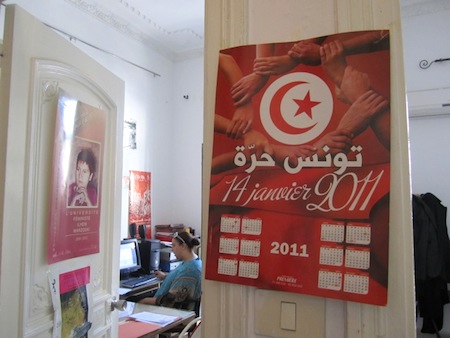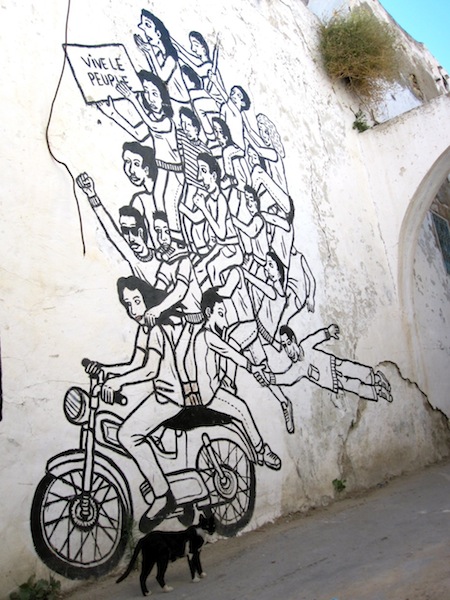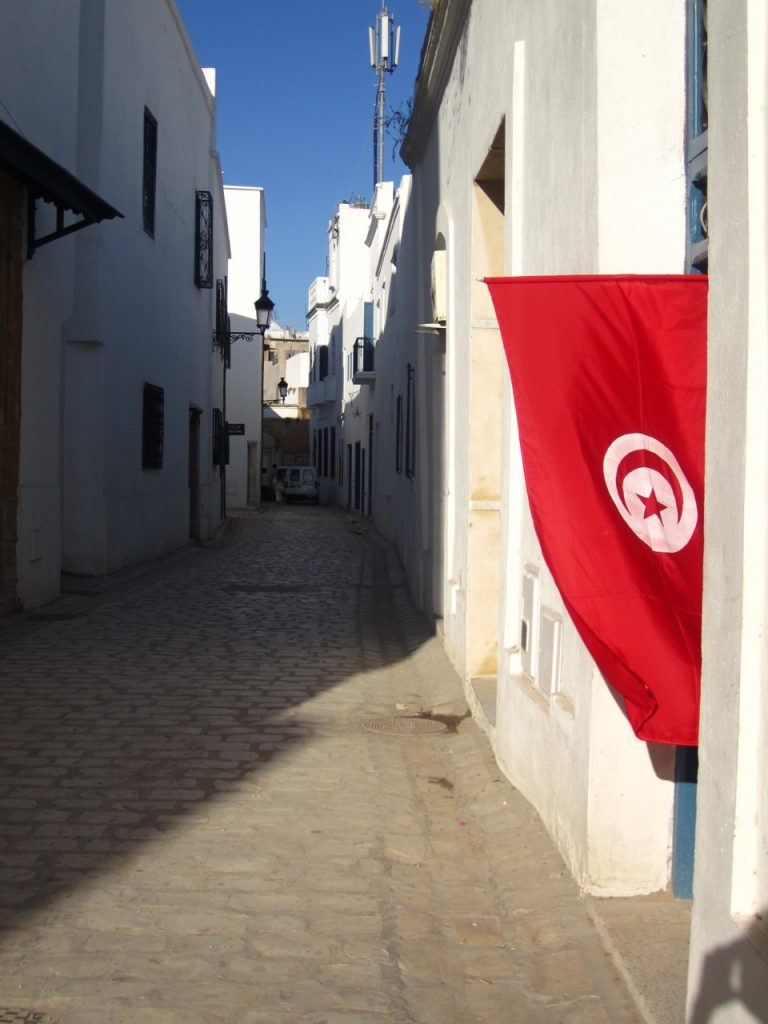Gender challenges in Tunisia
The ongoing revolution
Seven months after the fall of Ben Ali, Tunisians are threading new paths. Formulating new visions. One issue that cuts right through layers of politics, economy, ideas and belief, is gender equality. Mashallah News met with Ahlam Belhaj, head of Femmes Démocrates, and Soukeina Bouraoui, director of CAWTAR, to discuss women’s rights in the new Tunisia.
For both of Tunisia’s two post-independence leaders, Habib Bourguiba and just-ousted Zine el Abedine Ben Ali, women’s rights were a strategic tool used to ward off conservative rivals. During his reign, Ben Ali received praise from abroad for upholding the position of Tunisian women. But his simultaneous repression of human rights, political freedom, and social justice made any gender policies ring hollow. “Ben Ali and Bourguiba used women for their own policies. There are always politicians who want to do that. This has happened since Nefertiti,” says Soukeina Bouraoui, the director of CAWTAR, a Tunis-based research is institute for Arab women’s rights. “But Tunisian women have decided to fight for their rights. We cannot and will not go back. And women’s rights are universal. They belong to women everywhere. The Arab world took part in creating them, just like everyone else.”
“Ben Ali and Bourguiba used women for their own policies. There are always politicians who want to do that. This has happened since Nefertiti.”
Ahlam Belhaj is the director of one of Tunisia’s oldest feminist organisations, Femmes Démocrates. The group has worked to promote equality in Tunisian society since 1989, and is now busy keeping the issue on the post-revolutionary agenda. “The first and most important thing right now is to have women included in the political process and all parts of the transition,” says Ahlam. “Yes, we do have many good laws in Tunisia. But the ones we have are not enough, so we can’t be on the defensive now.”
Tunisia has a legislation that’s among the most progressive in the region. The personal status code from 1956 grants women and men equal rights in issues related to marriage, divorce, education, wages, and political participation. But legal rights rarely transfer into an equal reality. Like women everywhere, Tunisian women face discrimination, patriarchal structures and gendered social expectations. But a big and unexpected step was taken this spring. In April, the high commission in charge of planning the upcoming October elections voted with a big majority for a parity law saying men and women must feature in equal numbers on all electoral lists.
“This sends out a very important message. It says that men and women will build the new Tunisia together,” says Ahlam. “But the parity is about the lists, not the seats. So now we have to fight to get women elected. Also, not only politics matter, although that gets a lot of attention right now. Other questions are equally important. Equality in the family, laws against violence, sexual rights, media representation of women. And economic rights. This is a big question. Women encounter many problems. They work in marginalised sectors, they get less paid even when doing the same jobs. We speak a lot about inequality between different regions here in Tunisia, but we never talk about inequality between men and women although women are much poorer.”
“Yes, we do have many good laws in Tunisia. But the ones we have are not enough, so we can’t be on the defensive now.”
The task to build a new system is a challenge on many levels. The list of post-revolutionary societies where women paid a high price is long. The women of Iran and Algeria were key actors in the struggle against oppression; in Iran against the despotic Shah, in Algeria against the brutal French colonialism. Post-liberation, both saw their rights violated by the new male leaders. Eastern Europe demonstrates another democratic paradox. The Soviet system granted women political influence through a quota system enforced by the communist party. When the wall fell, the number of female politicians in Eastern European parliaments dropped from 30 percent to 10 percent.
We speak a lot about inequality between different regions here in Tunisia, but we never talk about inequality between men and women although women are much poorer.”
She continues: “In Tunisia, women fought for the revolution more than anyone else. Because they fought both as citizens and as women. The same in the rest of the region. When people are taking to the streets now, women are there. In countries like Bahrain and Yemen — even Yemen! — women are part of the demonstrations. No one can tell them to go back to the kitchen after that.”
“People are very active now,” says Ahlam. “The citizen feeling has developed a lot. It’s like everybody now are thinking about how they personally can contribute to making society better. This is a great development. But of course we’re in a difficult position. People tell us, ‘you’re a role model now, we’re following you’. This is hard. But it also makes us proud.”
“The citizen feeling has developed a lot. It’s like everybody now are thinking about how they personally can contribute to making society better.”
Tunisia’s religious party al-Nahdha has had a growing influence during the post-revolutionary months. The movement mobilised quickly after Ben Ali’s fall and is expected to fare well in the upcoming elections. By associating itself with Tunisia’s Arabic and Islamic identity, al-Nahdha represents a break with the secularist and west-friendly agenda of the old regime.
A much-debated issue is the party’s position on gender equality. The al-Nahdha leadership maintains its commitment to preserving the rights of Tunisian women, but the party’s Islamic identity remains the main issue in the media coverage. For Femmes Démocrates, it’s more complex. “We don’t want to clash with al-Nahdha,” says Ahlam. “As feminists, yes, we’re against some of their ideas. But we’re not against them as a movement. Media is happy to position us against al-Nahdha now, but that’s not the case. We are for things, not against. To be against something is not very productive. Instead, we speak about the kind of society that we want. An equal, open society where men and women have the same rights.”
“Before the revolution, Tunisia was a beautiful place. But only on the surface. Now, things are more sincere. We can see both the good and the bad. It might not be la vie en rose any more, but it’s for real.”
She continues: “And in reality, al-Nahdha is but one of many patriarchal forces in society. There are many parties run by men who are conservative but not Islamist. And most importantly, Islamist movements don’t have deep roots in Tunisian society. They’re very superficial and adapted to the current media climate.”
The mixed prospects Soukeina and Ahlam speak about mirror post-revolutionary developments in the larger society. A Tunis taxi driver probably puts it best: “Before the revolution, Tunisia was a beautiful place. But only on the surface. Now, things are more sincere. We can see both the good and the bad. It might not be la vie en rose any more, but it’s for real.”











